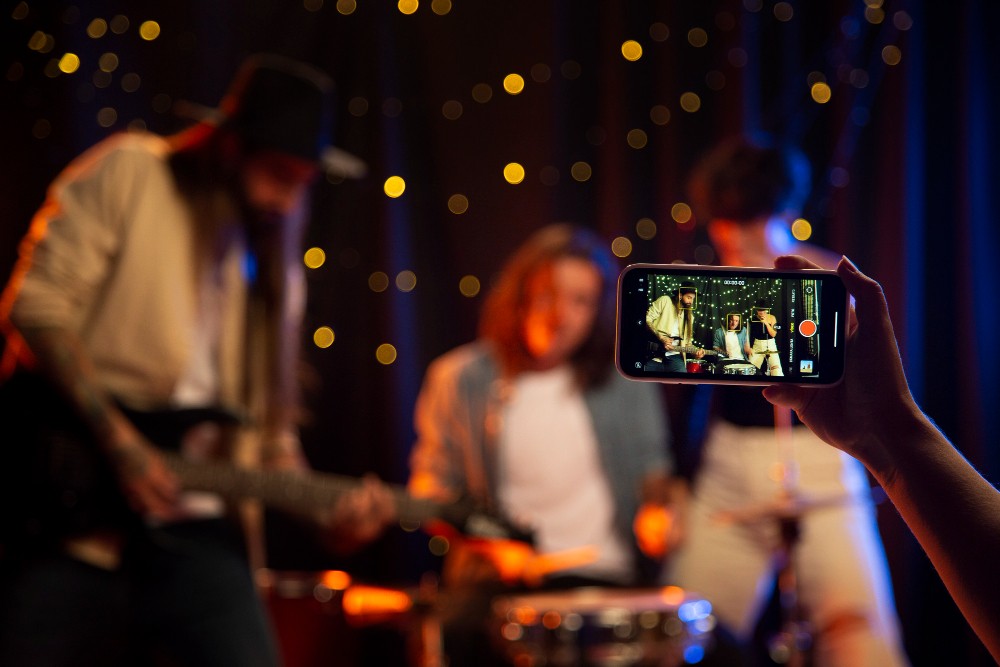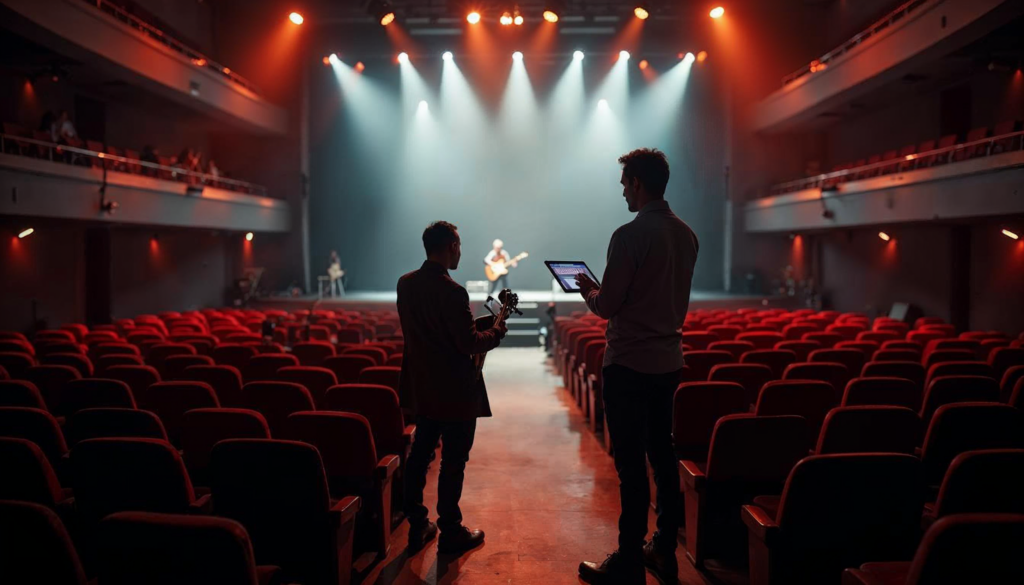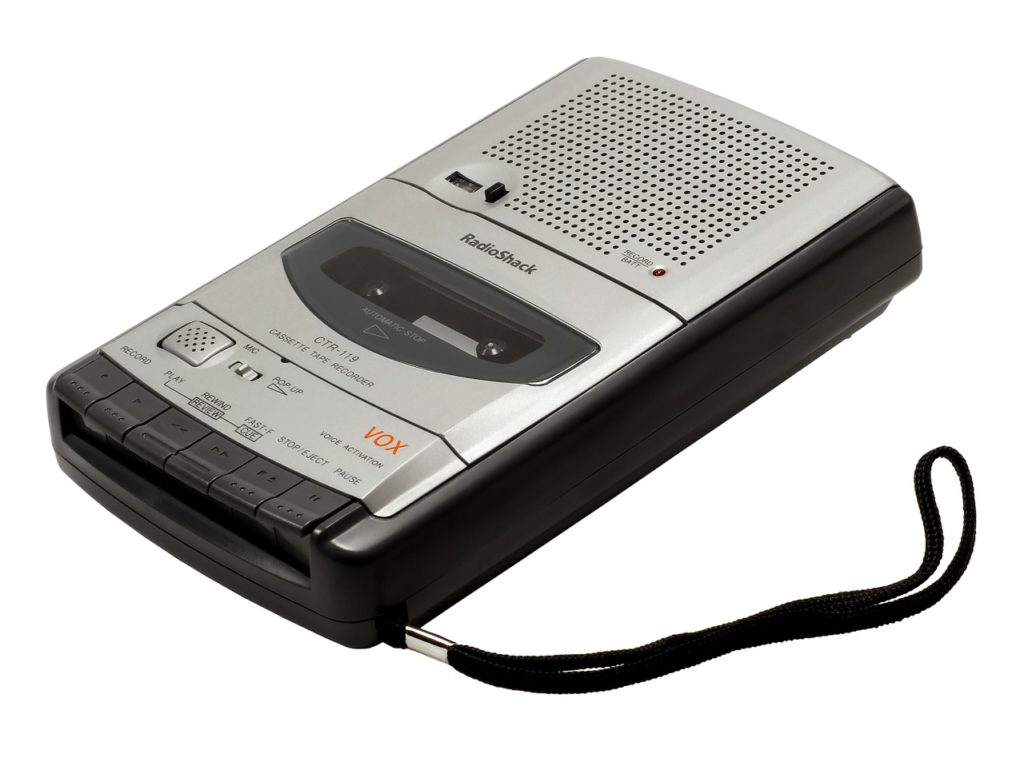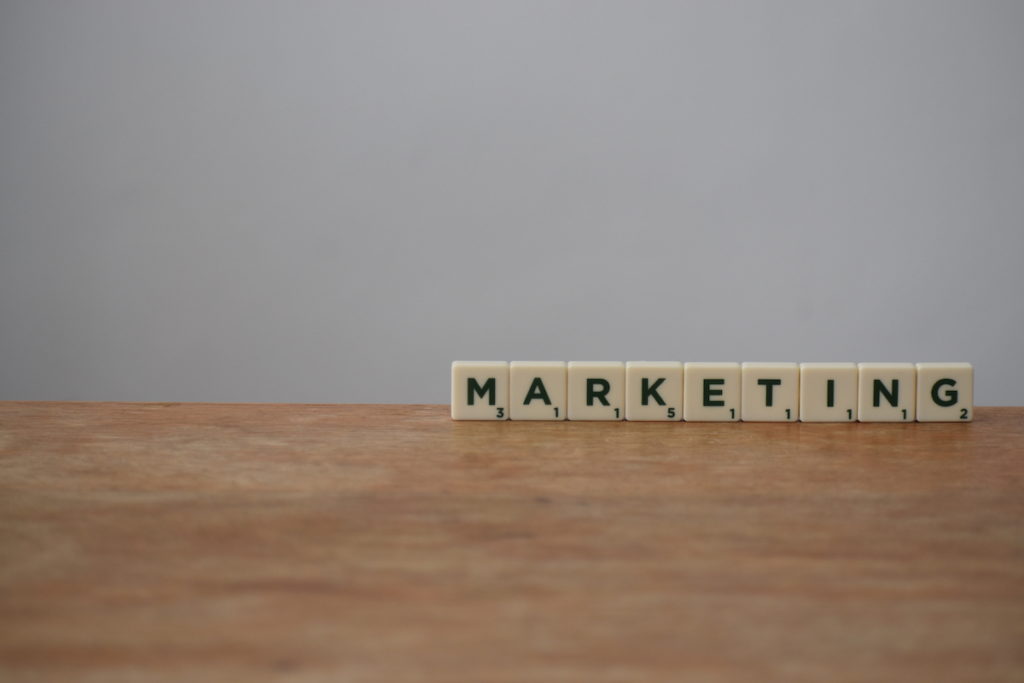
Live Music Industry and Mental Health: How Music Venues Can Show Support
Music venues are more than just places to hear the latest talent rock the stage on a memorable night out. For fans and music professionals alike, live music can offer an enormous boon to our mental health. Regular doses of live music can enhance our minds and bodies, turning our stress into beneficial energy that gets channeled into a rich communal experience. The restorative nature of music is what makes it all worth it for the pros who set out to deliver the best possible show every night.
The more we learn about the relationship between the music industry and mental health, the more we see how venues are in a perfect position to help. By building an inclusive environment that caters to both fans and artists, venue operators can turn good vibes into the building blocks of strong mental health for the entire community. Read on for tips that can help venues fulfill their positive mental health potential so that everyone can benefit.
The connection between the music industry and mental health
Music has been an important aspect of human culture for a very long time. Many public events in the ancient world were accompanied by music, which was used to enhance the atmosphere at weddings and important ceremonies.
The Ancient Romans and Greeks may not have been able to articulate it in so many words, but this music was helping the masses increase their endorphin levels and reducing the impact of stress hormones. For overworked societies with minimal outlets for entertainment, music was indispensable in helping everyone to cut loose.
Today, it is widely understood that the music industry and mental health are inextricably linked. Studies have shown that music provides a major uptick in overall quality of life, offering relaxation and release while helping people to foster new relationships. Musical therapy is now used to help manage stress and anxiety as well as a wide variety of other psychological ailments. Where other therapies struggle to make progress, music therapy often leads to a breakthrough.
Music’s potential is then amplified at a live music venue, where every show is a unique communal experience. Patrons get a chance to satisfy important social impulses while taking a break from the outside world. Experts even point out that music can stimulate the brain even more than verbal language. As we dance and sing at a live show, we’re making deep emotional connections that go well beyond what we can achieve on social media or from conversation.
How music venues can contribute to mental health with inclusivity
The atmosphere at a music venue is the key to seizing the potential of the shared experience. However, in order to fulfill this potential it is important to address the barriers that some fans can encounter at events, especially those relating to inclusion. Social integration and acceptance are some of the most important ways that live music can positively impact the crowd. From this perspective, anything a venue operator can do to underscore those goals will help the audience flourish.
Related: Emerging Trends and Predictions for the Live Music Business in 2023
A fundamental way to improve a venue’s outlook is to ensure a high level of accessibility and inclusivity for every attendee. Some of this will have to do with the physical features of the venue, but much will come down to the training of the staff. Some basics to consider include:
- Being respectful of physical contact and personal space
- Not making assumptions about an individual with a disability
- Training staff to use person-first language
- Offering inclusive signage that caters to the widest possible audience
- If possible, offering ALDs (assistive listening devices)
It’s also critical to listen to feedback and adapt to new challenges. Encouraging direct feedback and seeking out reviews can be a simple way to resolve issues that are affecting audiences. Being proactive shows that a venue is ready to shift with the needs of the audience, helping operators build a reputation for inclusivity that can spread through the community.
By removing barriers and showcasing empathy, venue operators eliminate the distractions that often stop guests from fully connecting with the artist (or the rest of the crowd).
Inclusivity is even more important in a post-pandemic world
The pandemic forced entertainers to think about the audience from a new perspective. Because everyone carried a different level of risk during the height of Covid-19, we had to change the way we viewed audience health and safety as we reopened the doors. Inclusivity was pushed into the spotlight and steps had to be taken to protect the most vulnerable. If a high-risk guest didn’t feel safe as they returned to their favorite venue, operators missed an opportunity to reignite their love of live music.
Even as pandemic pressures fade, many of the lessons learned can inform how we look at guest experiences. While the mental health discussion was less prominent in previous generations, we now know just how important it is to the live music scene. Creating an inclusive environment is an essential part of facilitating that relationship. It’s also a huge opportunity to help venues connect with the next generation of music fans.
Other ways a venue can help
There are even more opportunities to positively impact mental health after the show wraps. One way to go is by partnering with health organizations and targeting mental health issues that will benefit the broader community. Reaching out to the community and talking directly to local leaders can help you stay in tune with developing issues. It can also create new relationships that demonstrate your commitment to inclusivity.
A venue operator might also want to cosponsor a local event that can reach underserved sectors of the community. Having a presence at a charity event or outreach program can help you build contacts while adding a fresh perspective that you can incorporate into event planning. It’s also a way to prove you’re serious about raising awareness and understanding your audience. If you can show you are interested in finding real solutions for mental health issues at a non-music event, no one will doubt your sincerity in the concert hall.
Caring for the mental health of artists
The artists put themselves all the way out there every time they take the stage. Not surprisingly, the toll of a show or tour can be extreme, with artists more affected than anybody else when it comes to the negative impacts of the music industry and mental health. The conversation around artists and mental health has also dramatically changed over the last couple of decades; what used to be left out of the conversation is now front and center.
This dynamic has been laid bare by Maroon 5’s founding drummer, Ryan Dusick. After leaving the band in 2006 for health reasons, Dusick began to realize how much his declining mental health contributed to his struggle. Since retiring from Maroon 5, Dusick has become a mental health professional who is open about the stresses of performing.
Though he specializes in family therapy, he urges musicians to find the same type of balance that he advises for his clients. In an industry that often oscillates between extremes, Dusick advises artists to take time for self-care and to find a lifestyle balance that can help manage stress.
There’s also a much better support system for artists than there was in Dusick’s drummer days, and venues can follow the lead of some excellent organizations. Groups like Silence the Shame and Backline aim to end the stigma around mental health and connect musicians to professionals who can help.
Every region also has its own local resources that venues can tap to show solidarity with artists. Posting contact information in artist dressing rooms and publicly supporting mental health groups can show musicians you’re there for them. Even with the mental health advancements since 2006, many musicians feel it’s their duty to press on for the sake of the show no matter the toll.
Venue operators are in a unique position to demonstrate that some things are more important than putting on a great concert and improving the relationship between the music industry and mental health.
Mental health and music professionals
Venues must be comfortable places for fans and artists but also for the professionals that pull it all together behind the scenes. Some stress is inevitable in the business, but venue owners can take similar steps to promote mental health among the staff. By connecting with mental health groups and looking for signs of burnout, we can help provide a path forward for those struggling to get by.
Related: The Impact of Music Business Management Software on the Industry
One of the best ways to show support for other music pros is to provide the best tools for the gig. Often, monotonous tasks are the cause of burnout in the workforce. While much of live music production is exciting, there are still mountains of less exciting tasks that staff members need to handle.
But this is also where we can lighten the load through automation. Instead of manually handling all documentation, automation-based solutions cut down on the monotony and allow staff to spend more time on other duties. Meanwhile, the cloud can streamline communications and provide a welcomed dose of efficiency.
The benefits of creating a more effective system can be felt throughout the workforce. Instead of being weighed down by paperwork, staff can turn the corner and get back to the aspects of the business that brought them to live music in the first place. Not only can this positively affect the mental health of venue personnel but they’ll be better positioned to focus on guest experiences. By taking the time to promote a healthy atmosphere, everybody wins.
Today’s top music management software offers an excellent way to improve the work culture that drives the music industry. Prism’s music-first platform is designed with the stresses of live music in mind, helping venues handle the workload and provide the boost that music pros need to succeed. Get started today to see how Prism can help.

Matt Ford is the founder and CEO of Prism.fm, an Austin-based software company revolutionizing live music event management. With a background in entrepreneurship and a degree from the University of Wisconsin-Madison School of Business, Ford combined his self-taught coding skills with firsthand experience as a concert promoter to address the inefficiencies he observed in the industry. In 2018, he launched Prism.fm, an all-in-one platform designed to streamline operations for venues, promoters, and agencies by replacing cumbersome spreadsheets with integrated tools for booking, financial tracking, and contract management. Under his leadership, Prism.fm has grown significantly, achieving $3 million in annual recurring revenue post-COVID and securing over $15 million in funding . Ford’s commitment to building user-centric solutions has positioned Prism.fm as a trusted partner for over 1,500 venues and promoters worldwide.



